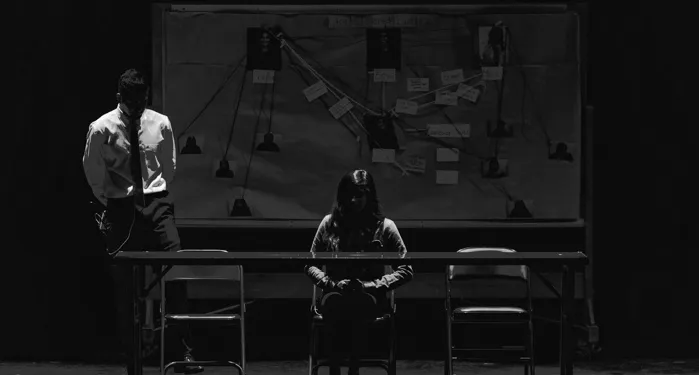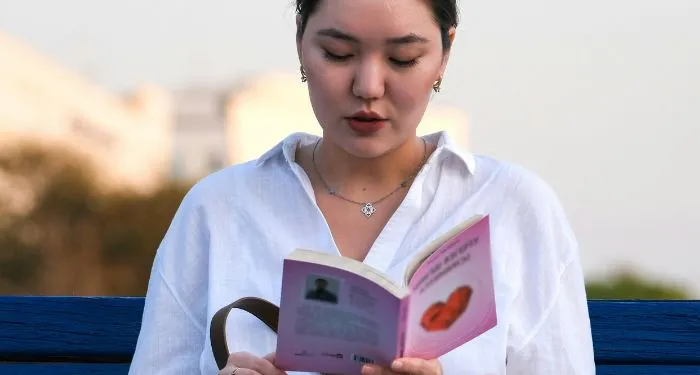Today’s conversation is another session of practical translation: the reading and comparing of many renditions of one passage to try and understand how translators make their choices. But the text we’ll be examining, The Thousand and One Nights, presents an unusual challenge. Unlike Proust’s In Search of Lost Time, which we discussed in the first episode of “On Translation,” there is not a fixed source text to work with. There have been countless retellings of Scheherazade’s tales over the centuries, many of which were written down, leaving many different manuscripts. What, then, does it mean for a translator to “take liberties,” or to be “faithful to the text”?
Maureen Freely: Here’s some French for you, by Antoine Galland.
Le grand vizir, qui, comme on l’a déjà dit, était malgré lui le ministre d’une si horrible injustice, avait deux filles, dont l’aînée s’appelait Scheherazade, et la cadette Dinarzade. Cette dernière ne manquait pas de mérite; mais l’autre avait un courage au-dessus de son sexe, de l’esprit in niment, avec une pénétration admirable. Elle avait beaucoup de lecture et une mémoire si prodigieuse, que rien ne lui avait échappé de tout ce qu’elle avait lu. Elle s’était heureusement appliquée à la philosophie, à la médecine, à l’histoire et aux arts; et elle faisait des vers mieux que les poètes les plus célèbres de son temps. Outre cela, elle était pourvue d’une beauté extraordinaire; et une vertu très solide couronnait toutes ses belles qualités.
Daisy Rockwell: I am reading the Richard Burton.
Now he had two daughters, Scheherazade and Dunyazad hight, of whom the elder had perused the books, annals and legends of preceding Kings, and the stories, examples and instances of bygone men and things; indeed it was said that she had collected a thousand books of histories relating to antique races and departed rulers. She had perused the works of the poets and knew them by heart; she had studied philosophy and the sciences, arts and accomplishments, and she was pleasant and polite, wise and witty, well read and well bred.
Virginia Jewiss: I’ll read from the Edward William Lane translation.
Now, the Wazeer had two daughters, the elder of whom was named Scheherazade, and the younger, Dunyazad. The former had read various books of histories, and the lives of preceding kings and stories of past generations: it is asserted that she had collected together a thousand books of histories relating to preceding generations and kings and works of the poets.
Jeremy Tiang: This is the Husain Haddawy translation.
Now, as mentioned earlier, the vizier, who put the girls to death, had an older daughter called Scheherazade and a younger one called Dinarzad. The older daughter, Scheherazade, had read the books of literature, philosophy, and medicine. She knew poetry by heart, had studied historical reports, and was acquainted with the sayings of men and the maxims of sages and kings. She was intelligent, knowledgeable, wise, and refined. She had read and learned.
Tiffany Tsao: And I am reading from Yasmine Seale’s version.
Now the vizier who had the women murdered had two daughters of his own, the elder Scheherazade and the younger Dunyazad. Scheherazade had read a lot of books, science and philosophy, knew poetry by heart, had studied history and myth and the wisdom of kings, and she was practiced at clear thinking and full feeling and close reading.
Rockwell: Maybe this is a good time to talk about unstable originals.
Tiang: Yes. I was briefly dumbstruck by Richard Burton’s Orientalism. In Yasmine Seale’s notes for these translations, she raises the point of there being discrepancies between them due to small differences between manuscripts. This brings us to Karen Emmerich’s amazing insight about translation being perceived as the rendering of a stable original, when in fact source texts can be as variable as their translations. In her book Literary Translation and the Making of Originals she suggests that source texts are not an inert gas but a volatile compound, and rather than thinking of translation as an act of textual replication, we should imagine it as textual proliferation. We do see a proliferation in these many translations and the different flowerings that these translators have brought to bear, from the Orientalist stylings of Richard Burton to Yasmine Seale’s much more sensitive translation, which is more attentive to the cultural context of the source.
Freely: I’m interested in the murder mentioned in some translations and not in others. It doesn’t seem to be mentioned in the Turkish translation that I have. I’m wondering if it came from one of the Orientalist versions.
Tsao: Well, there is a mention of it in the French: “A horrible injustice.”
Freely: Yes, but that’s not saying who did it. The Turkish version doesn’t have that either.
Rockwell: Neither does the Hindi one.
Tiang: Not the Chinese.
Tsao: So, it depends on which original text they were using to translate from.
Rockwell: I was thinking about this looking at the Hindi and Urdu versions. These stories are extremely popular in South Asia, and I’m sure these are translations of translations of retellings of translations. I thought maybe the Urdu somebody might have been looking at the Arabic, because that language pairing is perfectly possible. But it was actually much more abridged. They seem to have wanted to get to the point: “She was smart.”
Tiang: But I think maybe the choice to insert or to reiterate the fact of the vizier having put girls or women to death is to have that contrast between his own two daughters. That’s the sort of intervention that a translator might make to highlight a contrast, even if it’s not present in the original.
Rockwell: I think in Yasmine’s it’s highlighted the most.
Freely: But the French version has said, you know, he was the “ministre” of a horrible injustice. But it says “malgré lui,” which means “unwillingly,” which then gets tossed.
Jewiss: There’s a softening somehow of the horrible injustice that he enacts, which is a very different claim than putting the girls to death, right? Who murdered these women or had them murdered?
Merve Emre: I am struck reading these by the rhythms of the sentences, which are sutured together in all kinds of different ways using very different grammatical formulations. Some are more hypo-tactical. Yasmine Seales’s seems very deliberately paratactical. You see all the “ands” linking the different parts? Some of these translations feel quite cluttered to me, and others quite clean. I’m curious to hear all of you talk a little bit about syntax, grammar, rhythm, sound, and economy.
Rockwell: I feel like what we see in this kind of selection are the aesthetics of different eras. Richard Burton is following the aesthetic of this overblown, flowery, Orientalist language. He can’t even resist putting the word “race” into the middle of the translation. Whereas Yasmine is trying to heel more closely to the Arabic, which is in itself, I think, an aesthetic. She’s not part of the retelling tradition. She’s actually translating the text. But I think also in this contemporary vein, the economy shows that she’s really just sticking to the words on the page.
Tsao: Yet I noticed in her version the end—“clear thinking and full feeling and close reading”—still has that rhythm. Burton tries to get it as well. “Pleasant and polite, wise and witty, well read and well bred,” which is a bit over the top.
Rockwell: Yes, but it all hints at some rhythm in the original.
Freely: Then we have the one that has no rhythm whatsoever, that reads like a legal brief
Tsao: Lane’s?
Freely: Yes. “Now, otherwise, I had two daughters, the elder of whom was Scheherazade and the younger Dunyazad.” The voice is very, very dry here. It’s a summary.
Tiang: But interestingly, with all of their different voices, they all start with “now,” which suggests they’re all reaching for a kind of storytelling register.
Rockwell: Which the French doesn’t have, by the way.
Jewiss: There’s also, of course, in the French a reference to an ongoing or a never-ending story, which is really what The One Thousand and One Nights is as a framed narrative. That does come up, Jeremy, in the passage that you read now, in the sense of moving backward and forward in time. I thought the rhythm of that translation was lovely. Perhaps I was most struck really by the end sentence there: “She had read and learned.” It calls attention to the fact that one can read emptily or one can read learnedly. It’s a very simple sentence and yet it seems to be saying a whole lot.
Tsao: Because a woman is often the object of a poetic reflection, if the prose gets too flowery, it romanticizes her. But then the more prosaic versions have her being just very knowledgeable. They tell us that these were the things she was knowledgeable about, as opposed to making knowledge a beautiful quality.
Emre: I’m struck by the difference between “[she] was practiced at clear thinking and full feeling and close reading” and describing her as “intelligent, knowledgeable, wise and refined, she had read and learned.” I know you don’t have the text surrounding this excerpt, but I wonder if you could imagine the distinct type of narrator the different translators are setting up.
Tsao: Well, Seale’s stresses what she did rather than what she was. I think that sets you up to encounter someone who has wits and will use them to save her own life.
Jewiss: Lane somehow distances her from her accomplishments. “It is asserted that”—there’s a sense of casting slight doubt on her, as opposed to the other extreme of guaranteeing us, the readers, that we can trust our narrator, that we know we are in good hands and can watch her unfold this incredible construction of framed tales.
Tsao: The Lane is so boring. It sounds like she’s doing very boring things, like collecting a thousand books of history.
Rockwell: Genealogies and things like that.
Jewiss: There’s more of a compiling rather than a creation on her part, or some sort of processing as opposed to taking on as her own the wisdom, the knowledge, as well as the feeling. I’m struck by that emphasis on reading as something that is not just intellectual, but something that is deeply emotional. Of course, when we know where this story is going to go, we appreciate the deep emotions of a sister who is working not only to save her own life, but the life of her younger sister—the full feelings that are at stake in this are coupled with that clear thinking, because if she’s overwhelmed by emotion, she loses the clear thinking necessary to outwit her husband.
Freely: In the Seale version, she has agency. In many of the other versions, she’s been to a very good finishing school.
Jewiss: Yes, and the “well-bred” that we get in the Burton seems to be no longer a concern later on. There’s a concern over whether someone is well-bred as opposed to intelligent. The nobility of blood as opposed to the nobility of the soul is a medieval distinction that seems to me retrieved here. We now worry only about the nobility of the soul, which it is right to worry about in this situation.
Rockwell: But still, I feel like Haddawy is trying to go for what Seale is doing with things “she had read and learned.” In other words, not just that she had done what you’re supposed to do. She had actually taken it in, soaked it in.
Jewiss: But I find that insertion of the “full feeling” really essential for acknowledging a different form of emotive intelligence here.
Tiang: There is something about the Richard Burton that makes me feel like I’m going to be suffocated by ornamentation. Why “peruse” rather than “read”?
Freely: Don’t you ever have an ambition to write badly for fun and just overdo it? You can throw it away afterward, but to write like Burton would be a lot of fun before throwing it away.
Tiang: I think that is the problem. He had too much fun.
Freely: Oh, definitely. But he gave himself permission.
Jewiss: The Burton makes us think about loss and the past with the difference between “departed rulers,” which we see receding into the background, rather than “kings” or even “preceding kings.” There’s an inscription of loss in this text, in “the antique races and departed rulers.” I’m not defending it as a translation in any way. But I can feel the sense of that desire to reach for the arcane and to create the mood of some mystical, distant past.
Tsao: This was a Victorian-era text, right? There is a sense of needing to capture the ancient, classical, wonderful world, like The Lady of Shallot.
Emre: The translation is from 1885, and he seems to be elaborating how very well versed she was in the quadrivium. He gives you a classical syllabus that authorizes her storytelling, whereas the more recent versions authorize, as you said, Ginny, the nobility of her spirit, and her intuitive understanding of what storytelling is and how one approaches it.
Jewiss: True, but those are also grounded in the quadrivium. She’s read a lot of books, she knows poetry by heart, she studied history and myth and the wisdom of kings. I like the phrasing here, “and she was practiced,” as if all these forms of knowledge are inseparable. They must be held together in this one sentence. This is the only way, perhaps, that one can do a close reading: with full feeling and clear thinking at the same time. This takes us to the college classes that we teach. Close reading must also be grounded in some understanding of history or previous poetry or other forms of wisdom. It’s not something that stands completely isolated, to go back to our Proustian word.
Freely: You spoke a lot yesterday about standing in the shadow of a sacred text. Here we have a number of translators standing in the shadow of two different tainted texts and all of the controversy around its Orientalism. Also, we don’t know the precise origins of The One Thousand and One Nights. That imposes a different set of responsibilities on a contemporary translator. It’s not just what they’re putting on the page, but what they’re determined not to put on the page, or what to put on the page instead of the shadow that is in the text.
Rockwell: I agree. I think that because this story is so ubiquitous, many of us may have first heard it—not read it, but just heard it—from a parent or a relative who told us this story as entertainment. If we first heard it in English, probably the person who told it to us had read Richard Burton. His framing is so enormous that a contemporary translator is peeling back this non-textual text that’s existed everywhere, another piece of Orientalism that lives on in its present form.
Emre: It’s the opposite of the Moncrieff problem we were talking about in the previous practical translation episode. In that example, we had a translator whom everyone seemed determined to respect via their subsequent translations, while still differing on certain points. Here you have translators who seem quite determined to disrespect or reject the translation that casts that long shadow. I’m curious to hear you all talk about what liberties one can and ought to take when working with an unstable original. Just to give a very small example, it seems like there’s a difference in my mind between the force of the phrases “had put to death” and “murdered.”
Jewiss: Is Seale perhaps positing a collapse between herself and the narrator, Scheherazade? She, the translator, also must be doing these very things, practicing clear thinking, full feeling, and close reading, and so calls attention to how we approach a text.
Freely: Yes, and if Burton felt that he could do what he did, why shouldn’t she do what she thinks is more interesting and closer to the way she understands Scheherazade?
Tsao: Well, I think certainly if there are multiple predecessors, there is much more room to play or to be controversial without the risks being too high. If you are translating something for the first time, it might be the only time. I feel like it’s a different kind of pressure. There’s no room to just play. But if I have room to play, it means that this great book will probably get translated again, and has been translated before, and I don’t really need to worry too much about it. When there’s only one translation, that’s where then you start getting into issues of “doing violence to the text,” because then there may not be another body to look at.
Jewiss: Also there is the work of peeling away the layers, which is something that Emily Wilson is so attentive to—really be going back and seeing anew, seeing a text with new eyes before you can even recount or read again. We have to be aware of not only our own biases, but also the layers of bias of the translations that we’ve inherited through our own education.
Tiang: When working with living authors and contemporary works, I think there’s a different kind of unstable original at play. Yes, it is potentially higher stakes in that yours is possibly the only translation that will ever exist. But the text is unstable in the sense that you can translate in conversation with the author. Sometimes changes do happen to the source text in these instances just by me saying “I don’t understand why this character says this thing,” and having a conversation that ends with the author rewriting elements of the source text. Sometimes those make their way into future editions, so that you, the translator, have been responsible for destabilizing the source. I think that’s a positive interaction. Instability doesn’t have to be a bad thing.
Rockwell: We see that too in self-translation, which many of us think is a bad idea partly because the author treats their own text as completely unstable. They’ll just start editing it and changing it and rethinking who the audience is in a new language.
Freely: That’s a wonderful thing. That’s why I’d like to be able to do it. That’s why Tezer Özlü completely destabilized her first text, because she had another year to think about it. She had written in German about a fantastical journey right after she completed the journey. Within a year, she had created a completely different work of art in Turkish, which is wonderful, but terrible if you’re trying to use both texts.
Jewiss: I had an experience of an unstable text with a contemporary author that was slightly different, not so much room for creativity. I translated Roberto Saviano’s ZeroZeroZero, about the criminality of the cocaine industry. While I was working on the translation of the published Italian, several of the drug lords were either arrested, killed, or escaped from jail. Saviano rewrote those passages so that his book would be up-to-date, as if it were journalism. In the six or eight months that I was working on the book, all sorts of changes took place. It became impossible to keep pace with the continuing violence in the criminal world he was writing about.
We had to really intervene at some point and say, “This text must become stable in some moment if you ever want the English to come out.” This was less a question of creativity and more a question of the instability of the genre itself. Was the author thinking of this as an exposé about cocaine? Or was he thinking of it as the most up-to-date report on the cocaine industry? The difference of genre is something that’s really reflected not only in that work, but also in how Gomorrah, his first, very sensational work was considered autobiographical nonfiction in Italy. When I translated that into English, it was considered a journalistic piece. That means you do different things with that translation, and it also means that the author can act differently on his or her own text.
Emre: I’m thinking that might be a cocaine problem.
I have three meta-reflections on this conversation. One: with this example, as opposed to the Proust example, you all seem to have much clearer judgments about one or two of these translations being preferable to the others, for blended political and aesthetic reasons that can’t quite be teased apart. Two: the Proust discussion seemed to generate more enthusiastic attention on the level of the sentence, and you guys seem a little bit quieter on that front here. Three: we haven’t talked explicitly about gender and geography. It seems to me that what’s orbiting this conversation is the relationship between gender, geography, and genre. The more pleasing translations seem to come from the people who are geographically closer to the source texts, however unstable, but there’s also a sense that a woman might produce a different kind of translation.
Jewiss: Well, the first thing I would say before getting into the fascinating questions about geography and gender is that I feel less comfortable pushing against the so-called original because I don’t have access to it. Reading the phrasings of these various English versions against the French is one thing, but I feel like there’s a softer wall than when we were pushing against Proust’s original. I think my hesitation or wariness comes partly from that.
Rockwell: These are very different, whereas in the Proust there were very minor nuances that we had to get into. As we were talking about before, the excerpts are from the Arabic, which mostly doesn’t have cognates with English and has a completely different grammatical structure, so it’s much less likely that two versions would be extremely similar. The way that the verbs are put together is completely different. Also, they give us a snapshot of a much longer period in time. That’s why I brought up the aesthetics of different types of translation, whereas Proust offers a much more compact timeline.
Freely: We bring a lot of politics to the page. None of us—at this table anyway—are going to say, “I like the Orientalist version more.” We’re not going to say that, feel that, or think that. I have a strong resentment of the older versions, and the newer ones seem to share that resentment. We’re just looking for the best way through. We’re looking for female agency. We’re delighting in the resentment of the decorative, of nice adjectives for the finishing school, of talking down to women. How much of my life have I had to live with that? I’m not interested in it anymore. Basically, it’s hard for me to really look at the rhythm, at the music, because all these other things are getting in the way.
Tsao: Well, the Proust passage is about pleasure. Our focus would inevitably be drawn to talking about pleasure. This is about how she studied a lot, which is cool, but it’s just a lot of things that she’s read.
Tiang: But as Maureen points out, this taps into existing issues many of us have been involved in and have been concerned with for a long time. One of the reasons I was eager to start translating is that many of the translations from that Chinese that I had read felt Orientalist to me. Many of them had been carried out primarily by white Sinologists who translated in such a way that did not reflect my reading of these texts or my lived experience, which they were allegedly describing. I don’t think any of us here would deny that our identities, who we are, our histories and heritages shape the way we translate, as well as the way we read. That has been a shift in the field of literary translation, I think. We’re much more willing to acknowledge this, and we are working as a community to diversify the field so that different voices can come into the translation space.
Freely: That is where literary translation is useful, because it creates a critical space in which we can have the conversation.
Emre: But part of me resists what you’re saying: that a description of a French man getting sensuous pleasure from warm liquid in his mouth should necessarily cause us pleasure, whereas a description of a brilliant woman being introduced to us in a way that sets up her strategy for survival would necessarily foreground politics over pleasure. I think the brilliance of Yasmine Seale’s translation is that those last lines are so pleasurable. “Clear, thinking, full, feeling, close reading”—the way the adjective and the noun gerund are paired, the rhythm that sets up. There’s a lucidity to the syntax. It doesn’t mean you forget the politics or downplay the feminism, but it means that there’s no trade-off. You can have the politics and the pleasure. They depend on each other.
Tsao: True. Mostly I was trying to come up with a reason for why you thought we were all sounding very boring in this conversation compared to the earlier one.
Freely: I would say that we don’t get to that really nice bit until the end of the sentence. We have been trudging through mud until then.
Jewiss: Just looking at the French here, at the Galland, I don’t find the same poetic qualities in the French that I found in the Proust, and so it causes me to look differently at what an English version is doing. I agree with you that the beauty of Yasmine’s translation redeems and somehow offers a poeticism in this neat rhythm, this connectedness, and a sense of clarity that I don’t see in the French but that I did sense very much in the Proust. As a translator, I think one would do different things to this French as opposed to that French, and that’s partly why there’s such leeway in these various versions, because one might be leaning toward a certain kind of fidelity. All of them are recreating in some way. In terms of the historical distance—and again, not to be defending Burton—if you’re aware that these tales were compiled as a collection no later than the fourteenth or fifteenth century, there may be a question of, how do I historicize in some way? How do I reach back? Or is that not my stance as a translator?
Freely: Another source of uneasiness for me, just on the basis of this page, is that I’m not seeing the Arabic. I’m not hearing the Arabic. I’m not having an account of where Yasmine got her text. And that is a really interesting story and a really important story for us to know when we’re looking at this. We’re looking at what she’s doing after looking at all of these other, questionable sources, and we’re even farther away from where it might have come. But there’s a remedy to that, another page.
Jewiss: Exactly. But that’s what I meant when I said I couldn’t look back to the original on this, even an unstable original.
Freely: We talked about how difficult it is if you’re standing in the shadow of a sacred or an important or a famous text. But Yasmine had an extra difficult time because she’s trying to circumvent that whole tradition of the romance around The Thousand and One Nights. The interesting story for me would be to find out more about how she did that, even when she had this baggage of other English versions.
Emre: For those of you who have also had the challenge of circumventing Orientalist translations by, say, Sinologists or Oxbridge historians, what are the strategies for writing around that romance or deflating it?
Tiang: I have found that simply by choosing to translate younger contemporary Chinese writers, I’m already pushing back against the image of what Chinese literature consists of. And I have actually had editors say to me, “Oh, this doesn’t feel very Chinese. Why are they in the city, rather than the feudal countryside?”
Tsao: Why aren’t they peasants tilling the land and harvesting sorghum?
Freely: When Orhan and I did our second book together, Istanbul: Memories of a City, I was called up by an editor at The Times. He asked me to write an article on, “Is there such a thing as Turkish literature?” This was at a time when I needed to earn money as a journalist. I said, “Yes, there’s this centuries-long tradition of poetry—” and he said, “Okay, that’s enough, seven hundred words.” Seven hundred words to write about all of Turkish literature. There’s this idea that Orientalism is dead and gone, but it isn’t.
Tsao: When I first read the stories in People from Bloomington and realized that they were set in Bloomington, Indiana, and that it was mostly an all-American cast, I was just so interested in it. I asked a publisher dedicated to publishing Indonesian literature in translation if these had been translated before. The answer was, “No, they haven’t been. And frankly, it doesn’t surprise me, because the works are funny and amusing, but that rings false in the English.” I was really pissed off, and that made me want to translate the book. Indonesian literature can be things that you don’t expect. For so long, we have had this tradition of Western writers going to the Orient, writing exotic Eastern characters. But we don’t see the reverse, and if the reverse does happen, it often hasn’t been translated yet. I think there is the ability to expand conceptions of East and West not only through the quality of the translation, but what you’re translating.




















 English (US) ·
English (US) ·